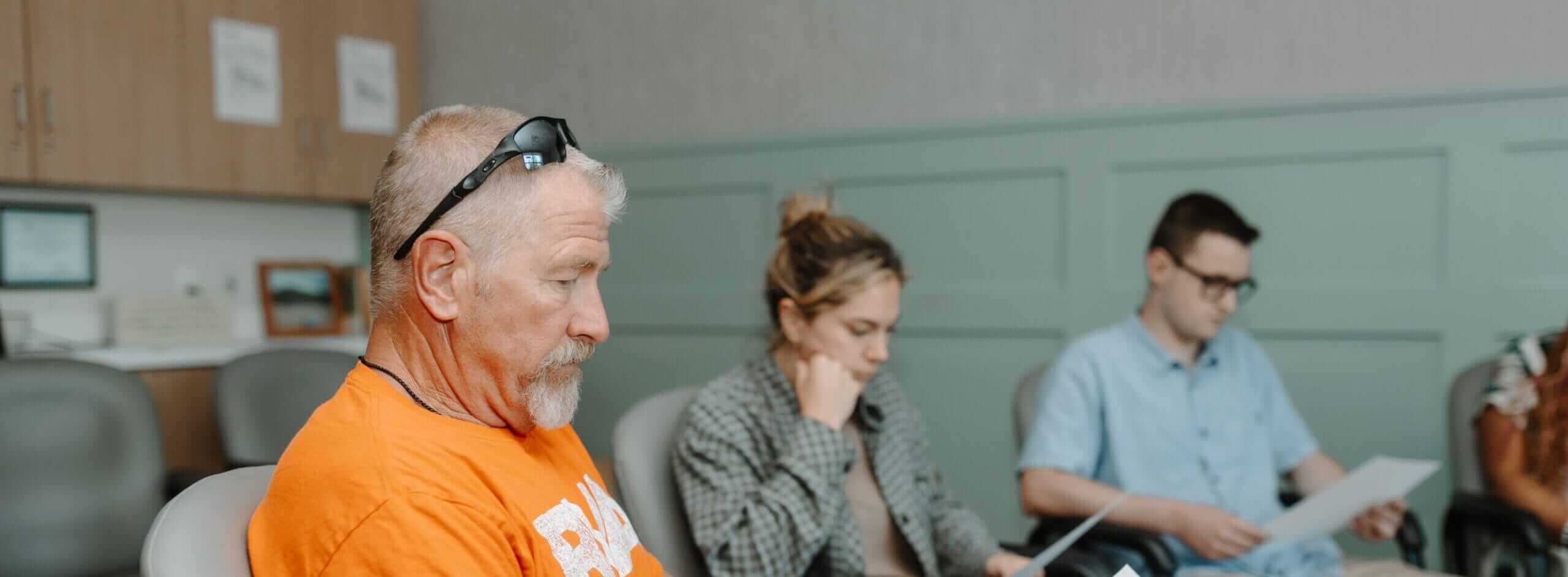

Maryland Opioid Addiction Treatment
Understanding Opioid Addiction
Opioids are a class of drugs that include both legal prescription pain relievers like oxycodone, hydrocodone, and morphine, as well as illicit drugs like heroin. They work by binding to opioid receptors in the brain and other parts of the body, reducing feelings of pain and producing a sense of euphoria. Medically prescribed opioids are typically used to manage severe pain, such as after surgery or for chronic pain conditions. However, they carry a high risk of dependence and addiction, as prolonged use can lead to physical tolerance and withdrawal symptoms when use is reduced or stopped. Illegally produced opioids, like heroin, pose additional risks due to varying potency and contamination.
Opioid addiction often begins innocently enough with a legitimate medical prescription. Patients may receive opioids from healthcare providers to manage pain after surgery, injury, or for chronic conditions. These medications, such as oxycodone or hydrocodone, effectively relieve pain by binding to opioid receptors in the brain and body. Over time, however, some individuals develop a tolerance to the drug, requiring higher doses to achieve the same pain relief. This increased tolerance can lead to physical dependence, where the body adapts to the presence of the opioid and experiences withdrawal symptoms if the drug is reduced or stopped.
In some cases, individuals may misuse opioids by taking higher doses than prescribed or using them for recreational purposes to experience euphoria. This misuse can quickly escalate into addiction, where the person continues to use opioids compulsively despite negative consequences on their health, relationships, and work or school performance. The addictive nature of opioids, combined with their ability to alter brain chemistry and create a powerful sense of pleasure, contributes to the rapid development of addiction in susceptible individuals. Environmental and genetic factors can also play a role in determining who may be at higher risk for opioid addiction.
Opioids are highly addictive due to their profound effects on the brain’s reward system. When opioids enter the body, they bind to opioid receptors in the brain, spinal cord, and other organs. This binding triggers the release of dopamine, a neurotransmitter associated with pleasure and reward. The flood of dopamine creates a euphoric sensation and reinforces the behavior of taking opioids.
Additionally, opioids can alter brain chemistry over time. Prolonged use leads to tolerance, where higher doses are needed to achieve the same initial effects. As tolerance develops, the brain adapts by reducing its own production of dopamine and making opioid receptors less responsive. This leads to a diminished natural reward response and an increased drive to seek opioids to feel pleasure or avoid withdrawal symptoms.
Physically, opioids can cause changes in the brain’s structure and function, affecting decision-making, impulse control, and stress response. These changes contribute to the cycle of addiction, where individuals feel compelled to continue using opioids despite negative consequences to their health, relationships, and daily life.
The combination of powerful euphoria, tolerance development, and brain changes make opioids highly addictive substances, leading to a significant risk of dependence and addiction even when used as prescribed.
Opioids Vs Opiates
While all opiates are opioids, not all opioids are opiates. The difference between opioids and opiates lies primarily in what the drugs are derived from:
I came to Ashley as the result of my relapse on prescription medication after many years of happy, productive sobriety. I entered feeling angry at myself, full of fear, exhausted, ashamed and truly broken. Ashley is a remarkable place of hope and healing.
What to Expect from Opioid Addiction Treatment
Our approach to opioid addiction treatment emphasizes a holistic path to recovery. We recognize that the journey towards wellness begins with safely managing withdrawal symptoms under the guidance of our experienced medical team. After this initial phase, individuals transition into our comprehensive treatment program, which offers a variety of therapeutic activities tailored to their specific needs. By empowering patients to create personalized schedules that align with their interests and requirements, we enhance the effectiveness of our programs and guide individuals towards sustainable recovery.
Our treatment includes a range of therapies such as psychotherapy, group therapy, medication-assisted treatment, and holistic activities. These therapies equip individuals with essential coping skills to navigate the challenges of recovery. While opioid use disorder is a chronic condition, our program emphasizes that with the right support and resources, it is manageable.
Medications Used to Treat Opioid Addiction
At Ashley, we understand the complexities of addiction and prioritize evidence-based approaches that include medications like buprenorphine and naltrexone. These medications are central to our holistic treatment philosophy, offering effective relief from withdrawal symptoms, reducing cravings, and providing essential support as our clients work towards sustainable sobriety.
Counseling for Opioid Addiction
Our approach combines evidence-based psychotherapy and group therapy services to support clients in their journey towards lasting sobriety and emotional well-being.
In our psychotherapy sessions, clients work one-on-one with experienced therapists who utilize various therapeutic approaches such as cognitive-behavioral therapy (CBT), psychodynamic therapy, and motivational interviewing. These sessions are tailored to address underlying issues, manage cravings, and develop coping strategies essential for overcoming addiction.
Additionally, our group therapy sessions offer a supportive environment where individuals can connect with peers facing similar challenges. Led by skilled facilitators, these sessions encourage mutual support, shared experiences, and the development of interpersonal skills crucial for recovery. Group therapy fosters a sense of community and provides opportunities for feedback, perspective, and encouragement from others on the recovery journey.
At our facility, we are committed to empowering our clients through personalized treatment plans that integrate psychotherapy and group therapy. Through this holistic approach, we aim to help individuals not only achieve sobriety but also cultivate resilience, improve relationships, and reclaim their lives with renewed hope and strength.
Our Bel Air campus outpatient program is tailored for those with strong support systems, facilitating sustained recovery while balancing education, careers, and community engagement. You’ll follow a personalized treatment plan spanning six to eight months, initially with weekly or twice-weekly sessions that may transition to monthly as you progress. Group therapy sessions provide peer support, while individual therapy offers personalized guidance.
This program includes comprehensive services such as case management, family therapy, medication-supported recovery, Naloxone™ training, and transportation, ensuring accessibility and support throughout your recovery journey.
Inpatient Opioid Rehab in Maryland
Inpatient treatment for opioid addiction provides intensive, 24/7 care in a structured environment tailored for individuals with severe addiction or those needing extensive support. It focuses on managing withdrawal symptoms safely through medical supervision and the use of medications like buprenorphine or methadone to alleviate cravings and stabilize physical health. Medical professionals closely monitor vital signs and adjust treatments as necessary to ensure comfort and safety throughout the detoxification process.
Alongside medical care, our inpatient program offers a range of therapeutic interventions including individual counseling, group therapy, and behavioral therapies. These sessions help individuals address underlying issues contributing to their addiction, learn effective coping skills, and develop strategies for preventing relapse. The supportive community within inpatient treatment fosters camaraderie among peers facing similar challenges, providing encouragement and solidarity on the path to recovery. Overall, inpatient treatment provides a comprehensive approach to opioid addiction recovery, equipping individuals with the necessary tools and support to achieve long-term sobriety and improved well-being.


Partial Hospitalization Program (PHP) for Opioid Addiction
Our partial hospitalization program (PHP) for opioid addiction offers structured treatment and support while allowing individuals to reside at home or in a supportive environment outside of the program hours. It is suitable for individuals who require intensive treatment but do not need 24/7 medical supervision.
In PHP, participants attend treatment sessions during the day, often five days a week, receiving comprehensive medical and therapeutic care. This includes medical supervision to manage withdrawal symptoms and administer medications like buprenorphine or naltrexone as needed. Therapeutic interventions such as individual counseling, group therapy, and behavioral therapies are integral parts of PHPs, focusing on addressing underlying issues, developing coping skills, and preventing relapse.
The structure of our partial hospitalization program provides a balance between intensive treatment and the flexibility to apply newly learned skills in real-world settings. It offers a supportive environment where individuals can receive personalized care, build a strong foundation for recovery, and transition towards independent living while continuing to receive necessary medical and therapeutic support.
Outpatient Opioid Rehab in Maryland
Ashley’s outpatient program for opioid addiction offers flexible treatment options that allow individuals to live at home while receiving structured support and therapy. This type of program is suitable for individuals who have completed detoxification and do not require 24/7 medical supervision but still need ongoing care and assistance in managing their recovery.
In an outpatient program, participants attend scheduled appointments at a treatment center or clinic. These appointments typically include individual counseling, group therapy sessions, and medication management as necessary, such as prescribing and monitoring medications like buprenorphine or naltrexone. The focus of outpatient treatment is on providing education about addiction, developing coping strategies, and supporting individuals in maintaining sobriety.
Our outpatient program offers flexibility in scheduling, allowing participants to continue with work, school, or other responsibilities while attending treatment sessions. This structure encourages individuals to apply the skills and strategies learned in therapy to their daily lives, promoting long-term recovery and stability. Regular monitoring and support from healthcare professionals in an outpatient setting help individuals stay committed to their recovery goals and achieve sustainable improvements in their overall well-being.



